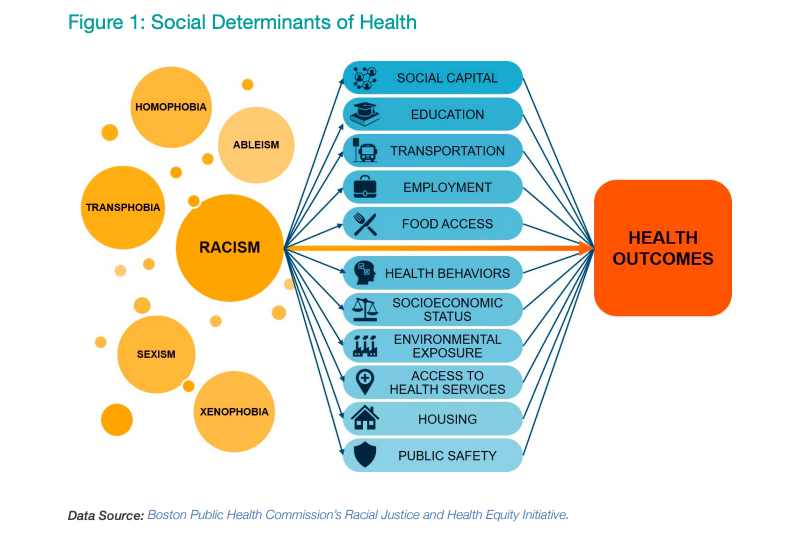About this Document
The 2022-2026 Strategic Plan for Asthma in Massachusetts is the result of a comprehensive planning process undertaken by the Massachusetts Department of Health (MDPH) Asthma Prevention and Control Program (APCP) in collaboration with the Massachusetts Asthma Action Partnership (MAAP), asthma partners and thought leaders across Massachusetts. The goals, objectives and strategies outlined below are based on the collective knowledge and expertise of the participants of the planning process regarding what is needed and achievable to address the inequitable burden of asthma in Massachusetts.
Framework for Addressing Inequities in Asthma Burden
Significant inequities in asthma outcomes persist within Massachusetts, with rates of asthma-associated hospitalization and emergency department visits for Black non-Hispanic and Hispanic residents three to four times higher than those of White non-Hispanic residents.
Acknowledging these inequities in asthma outcomes are driven by structural racism and social determinants of health, the 2022-2026 Strategic Plan for Asthma in Massachusetts strives to address these inequities through a framework of leading with race and racism explicitly but not exclusively. By leading with race and racism, we are acknowledging that systems failing our residents of color who are most burdened by asthma are failing all residents, and we can work towards improving the health of Massachusetts as a whole.
It is through this frame that the Asthma Prevention and Control Program, along with the Massachusetts Asthma Action Partnership and the partners engaged in the strategic planning process made a collective commitment to center asthma efforts within communities experiencing the highest burden of asthma inequities in Massachusetts (see full strategic plan for more details).
Strategic Plan Priority Area & Goal Statements
Housing
Goal: Advance access to safe, healthy, stable and affordable housing in Massachusetts to address asthma inequities.
Schools
Goal: Establish healthy school environments that address asthma inequities through evidence-based asthma prevention and control policies and practices.
Community and Clinical Coordination
Goal: Foster coordination between community and clinical care in Massachusetts to address asthma inequities.
Outdoor Air Quality
Goal: Achieve air quality levels that support equitable asthma prevention and control, and improve the overall health of Massachusetts residents.

